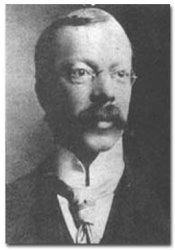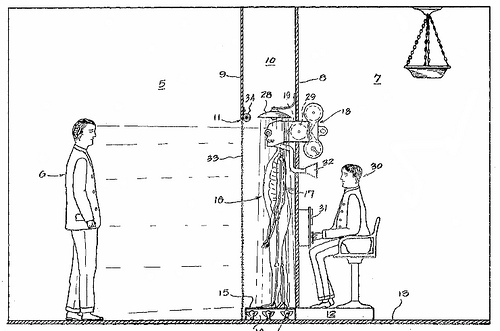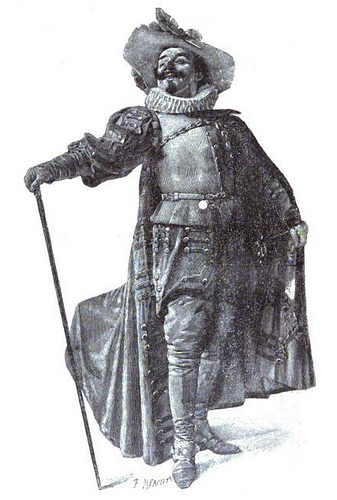
He does look evil, doesn’t he?
Hawley Harvey Crippen had fled for America by the time Scotland Yard discovered his wife’s torso under the brick floor of his London house.
But they sent out a warning, and the captain of the SS Montrose thought he recognized the fugitive aboard his ship. He asked his wireless telegraphist to send a message to the British authorities: “Have strong suspicions that Crippen London cellar murderer and accomplice are among saloon passengers. Mustache taken off growing beard. Accomplice dressed as boy. Manner and build undoubtedly a girl.”
Chief Inspector Walter Dew overtook the Montrose in a faster liner and boarded her in the St. Lawrence River disguised as a pilot. When introduced to Crippen, he said (resoundingly, one hopes), “Good morning, Dr. Crippen. Do you know me? I’m Chief Inspector Dew from Scotland Yard.”
Crippen hesitated, then said, “Thank God it’s over. The suspense has been too great. I couldn’t stand it any longer.”
Crippen’s mistress was acquitted, but he was hanged in 1910, the first criminal in history captured by the aid of wireless.
See STOP.



